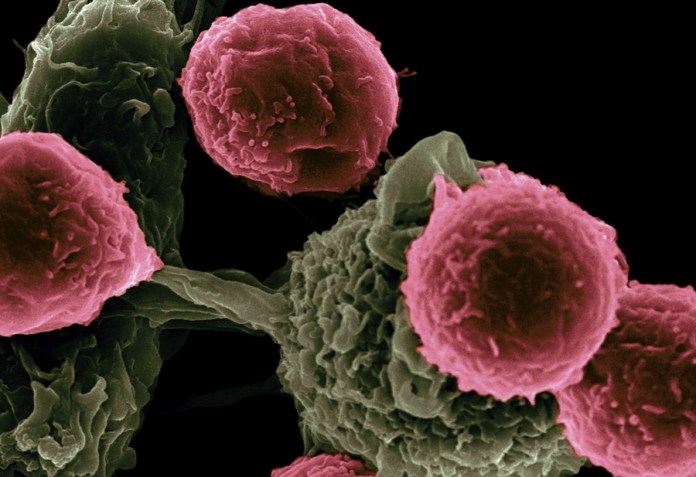Artificial intelligence continues to make an undeniable impact in the medical space and more importantly in cancer treatment by helping solve issues that previously seemed impossible.
In a similar case, a new study found out that artificial intelligence can process medical images in extracting both clinical and biological information to help in immunotherapy treatment.
The findings from a French research institute are vital since the study recommends that artificial intelligence (AI) can be utilized in creating a predictive score on immunotherapy efficacy. Hence, doing so could help in not only saving time but also boosting the chances of successful treatment.
Immunotherapy entails the process of utilizing the body’s immune system in fighting cancer. The aim of this process is to allow physicians to use imaging in identifying biological phenomena, particularly in a tumor situated anywhere in the body without the need to conduct a biopsy.
Researchers based at cancer research institute Gustava Roussy situated in France as well as four other institutions came up with a “radiomic signature” through designing an algorithm and creating it for analyzing CT scan images.
The radiomic signature is the extraction of large volumes of features drawn from medical images. What’s more, it helps in defining the level of a tumor’s lymphocyte infiltration, particularly where white blood cells exit the bloodstream and surge toward the tumor with the intention of getting rid of it from the body. In turn, this process produces a predictive score for the immunotherapy ’s effectiveness.
Currently, no marker has the potential to accurately spot patients who would respond to anti-PD-1/PD-L1(proteins ) immunotherapy, especially in a situation whereby only 15-30 percent of patients would respond.
Scientists involved in the study, which was published in the Lancet Oncology, said that the more the lymphocyte presence, the higher the chances that immunotherapy would be effective.
By leveraging the power of machine learning technology, researchers taught the algorithm that they had created for analyzing CT scan images to utilize the appropriate information drawn from scans that hosted tumor genome data.
The study concluded that the algorithm learned how to predict what exactly the genome may have discovered regarding the tumor immune infiltrate, primarily by looking at images only. This was with respect to the existence of cytotoxic T-lymphocytes in the tumor. The algorithm also generated a radiomic signature.
More tests of the radiomic signature revealed that patients primarily in whom immunotherapy was effective at both three and six months not only had higher scores but also better total survival rates.
Presently, there’s an upcoming study aimed at assessing the radiomic signature both prospectively and retrospectively. Moreover, it will include additional patients who will be grouped based on the type of cancers they have in a bid to refine the signature.
According to the recently revealed study, the next study is expected to incorporate more complex artificial intelligence and automatic learning algorithms in predicting patient response to immunotherapy.
With that, the researchers involved are looking forward to integrating data from various sources including tissue analysis, molecular biology, and imaging.
Source HealthDataManagment




















